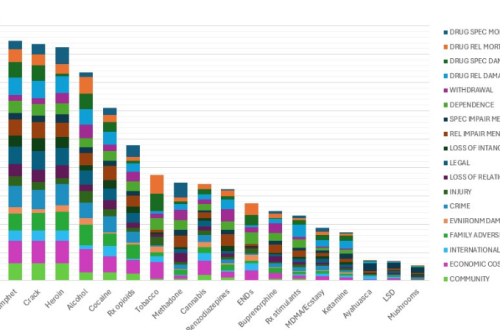Pubdate: Fri, 25 Jun 2010
Source: Ft. Worth Star-Telegram (TX)
Copyright: 2010 Fort Worth Star-Telegram
Contact: http://www.star-telegram.com/submit-a-letter/
Website: http://www.star-telegram.com/
Details: http://www.mapinc.org/media/162
Author: Leonard Pitts
THE NEW JIM CROW BY MICHELLE ALEXANDER, A MUST READ
“You have to face the fact that the whole problem is really the
blacks.
The key is to devise a system that recognizes this all while not
appearing to.” — Richard Nixon as quoted by H.R. Haldeman, supporting
a get-tough-on drugs strategy.
“They give black people time like it’s lunch down there. You go down
there looking for justice, that’s what you find: just us.” — Richard
Pryor.
Michelle Alexander was an ACLU attorney in Oakland, preparing a racial
profiling lawsuit against the California Highway Patrol. The ACLU had
put out a request for anyone who had been profiled to get in touch.
One day, in walked this black man.
He was maybe 19 and toted a thick sheaf of papers, what Alexander
calls an “incredibly detailed” accounting of at least a dozen police
stops over a nine-month period, with dates, places and officers’
names. This was, she thought, a “dream plaintiff.”
But it turned out he had a record, a drug felony — and she told him
she couldn’t use him; the state’s attorney would eat him alive. He
insisted he was innocent, said police had planted drugs and beaten
him. But she was no longer listening. Finally, enraged, he snatched
the papers back and started shredding them.
“You’re no better than the police,” he cried. “You’re doing what they
did to me!” The conviction meant he couldn’t work or go to school, had
to live with his grandmother. Did Alexander know how that felt? And
she wanted a dream plaintiff? “Just go to my neighborhood,” he said.
“See if you can find one black man my age they haven’t gotten to already.”
She saw him again a couple of months later. He gave her a potted plant
from his grandmother’s porch — he couldn’t afford flowers — and
apologized. A few months after that, a scandal broke: Oakland police
officers accused of planting drugs and beating up innocent victims.
One of the officers involved was the one named by that young man.
“It was,” says Alexander now, more than 10 years later, “the beginning
of me asking some hard questions of myself as a civil rights lawyer.
What is actually going on in his neighborhood? How is it that
they’ve already gotten to all the young African-American men in his
neighborhood? I began questioning my own assumptions about how the
criminal justice system works.”
[snip]
Continues: http://www.mapinc.org/drugnews/v10/n489/a05.html



